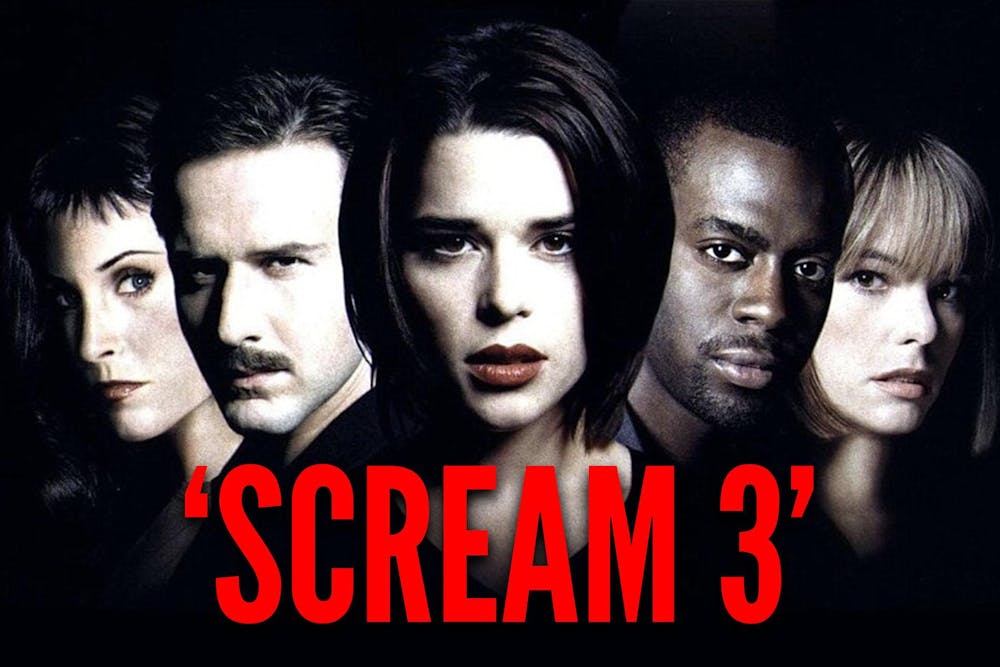Why do I care about the “Scream” movies so much?
It’s a valid question. I watched the first entry at the start of the pandemic; the 1996 Wes Craven meta-film about horror movie fans surviving the very situation they love to watch on screen, and I’ve been fascinated by the series since. I burned through the remaining three films in the franchise, deliberated watching the MTV adaptation (still have not), and waited eagerly for the Radio Silence-helmed revival in 2022. I love the “Scream” movies. Whether it’s the witty writing, the pitch-black comedic satire or the compelling characters that grow and change over the films, with each entry serving as a chance to check back in on beloved figures and see where they’ve gone, there’s something deeply lovable about the films.
For a long time, I’d probably tell you I hated “Scream 3.” Hate is a strong word, but it’s the strong word that people feel fine when using against art they don’t care for, so I’ll stick with it. “Scream 3,” released in the year 2000, three years after “Scream 2” and four after the original, was the planned conclusion to the “Scream” trilogy. It had all the staples of a grand finale: a return to the original setting (not literally, just a reproduction of the characters’ hometown), a mastermind villain that tied together the shared Ghostface identity and revelations about characters that change how you watch the series. These things are why I don’t like “Scream 3.”
I’m going to go on and spoil a 25-year-old movie, but “Scream” as a series is built on murder mysteries. I genuinely do not want to spoil this movie for those who have not seen it, because no matter my feelings on the film, you should watch it to form your own opinion, and not have it tainted by my views influenced from being such a massive fan of the series it’s from.
That all being said: the killer — a singular killer, a departure in tradition never to be repeated since — in “Scream 3” is one of the most convoluted and worst in the series. Most of the killers have some level of ridiculousness and complexity to their plans, but they were all believable. Jealous cousins, revenge-sick mothers, obsessed reddit users, these are all exaggerations of what you see in real life and in the news. Roman Bridgers is not that. He’s the secret half-brother of the protagonist — Neve Campbell returning as heroine Sidney Prescott — who is also a film director at the studio his mother worked at. Also, he orchestrated the murder of his and Sydney’s shared mother, by manipulating the killers of the OG film. Which in turn led to the revenge plot that inspired “Scream 2.” He can also build computers that imitate anyone else’s voice perfectly, and most bizarrely completely stop his own heartbeat.
At one point, the heroes check his pulse and declare him dead. This is done by Sheriff Dewey, David Arquette’s more than adequately intelligent support character. He would know what a pulse feels like. My only conclusion is that, amongst all the things that make him a super genius able to pull everything off, Roman can stop his heart.
I started this by saying I hate “Scream 3.” I don’t, not anymore. I just am not a fan of the script, the only one not written by Kevin Williamson (writer of the first two, creator of the franchise as well as “Dawson’s Creek”) up to this point. But, I love Craven’s direction, the acting of the entire cast and I’ll give the story (which WAS penned by Williamson) this — it was a nice ending to the Sidney Prescott storyline … until they dug up that grave 11 years later for “Scream 4.” Maybe I’ll write a 15th anniversary piece for that one next year.










